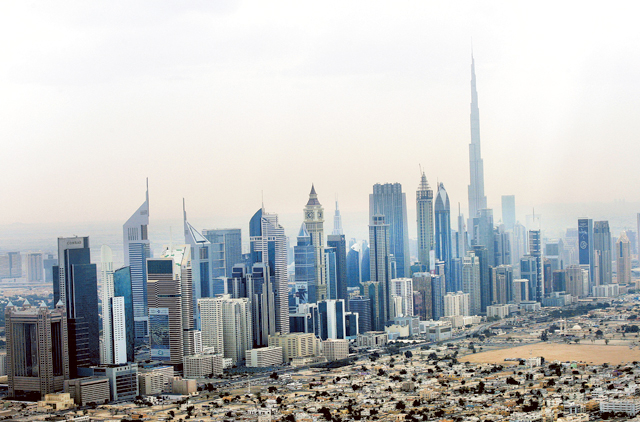Following volatility in oil prices, the UAE has focused efforts on diversification, which is already proving successful. The growth in non-oil trade has gone over Dh270 billion in the first quarter of the year; 6 per cent more compared to the same period in 2014. On top of the fact that the UAE benefits from its location as an important trade link, financial services and the property industry have also seen an increase.
However, the region is planning to take its efforts even further.
Will the introduction of value-added tax (VAT), the broadening of the corporate tax scope and introduction of an excise duty on vehicles — suggested by the International Monetary Fund (IMF) — bring the desired results?
Corporate tax: Will it deter future investors?
According to the IMF, the UAE is expected to lose $42 billion (Dh154.2 billion) due to the fall in oil exports revenue — and they have recommended that the region diversify its economy further still. The IMF suggested broadening corporate tax to include both foreign and domestic businesses operating in the region and introducing lower rate levels of 10 per cent.
At the moment 20 per cent is levied on foreign banks, which does not bring enough revenue to make up for the expected losses.
This should not have a negative impact on future investments. Firstly, it is still low — especially when compared to some Western countries thought of as having low corporate tax rate levels. Ireland, for example has a rate of 12.5 per cent leading to international entities like Twitter establishing their European headquarters in Dublin. Secondly, foreign banks in the UAE will no longer be at a disadvantage; which should be a positive move as financial services are increasingly profitable. Foreign direct investment (FDI) could increase as foreign investors will probably welcome measures that level them with their domestic competitors.
VAT: Can it have a negative impact on consumer spending?
The IMF views VAT as having the least detrimental impact; at the same time being the most stable source of revenue. It will limit tourists’ and residents’ purchasing power, but as long as it is implemented in phases, starting from a low rate, such as 5 per cent rate, the negative effects should be limited.
The UAE will be able to re-distribute revenue from international visitors to offset the negative impact of VAT on residents. A significant number of visitors to the emirates, for both business and leisure, are high net worth individuals who provide a substantial revenue stream.
Wealthy individuals are also unlikely to be as affected by a flat VAT rate as their spending power is very high. Furthermore, the re-distribution of income could help narrow some income disparities between the regions.
Vehicle duty: Can it stimulate trade and job creation?
A special excise duty on cars of 15 per cent, as suggested by the IMF, could be a measure to help reinvigorate Emirati infrastructure. The purpose of excise duty is to invest in roads by building new ones or improving and repairing those currently in use. This in turns improves transport and has a positive impact on trade, tourism and social mobility as travelling becomes less challenging and time consuming.
Moreover it should go without saying that more roads mean less traffic jams. It will also stimulate job creation. Money collected via vehicle charges can help the government build the necessary public transport facilities.
As car ownership and usage in the region is above the world average, this initiative could help reduce pollution; which is currently a problem for GCC states. There are plans to complete a $200 billion GCC-wide railway network in 2018 with metro construction also on the agenda.
The latest Economic Insight: Middle East* from the Institute of Chartered Accountants in England and Wales (ICAEW) explores the importance of prioritising efficient energy use and how this might contribute to the UAE’s diversification plan. Implementing changes on such a huge scale can lead to unexpected consequences as it is difficult to predict the exact impact each of the measures currently debated might have.
Policymakers will have to ensure that any taxes implemented will be replicated across borders within the region to ensure their competitive position is not jeopardised. This requirement, however, has been causing significant delays. As GCC states differ with regards to their economic development, so too do their requirements. Each country wants to ensure they will not be worse off.
Understandably the UAE will not risk implementing new tax measures unless an agreement is signed safeguarding its position as an attractive destination for investors.
At the same time, policymakers need to speak to businesses and assess the administrative burden companies will have to carry; and how the state could help. When it comes to tax implementation, the money raised for the process should not exceed the amount that is spent on administration of the process; though undoubtedly, it is hard to say at this point what the revenue may be.
Consumer and investor behaviour can be unpredictable. However, the time has come for the UAE to seize the opportunity. Oil prices are not expected to revert to previous high levels over the coming years, so diversification and exploring extra sources of revenue is the top priority.
— Michael Armstrong, FCA and ICAEW Regional Director for the Middle East, Africa and South Asia (MEASA)













